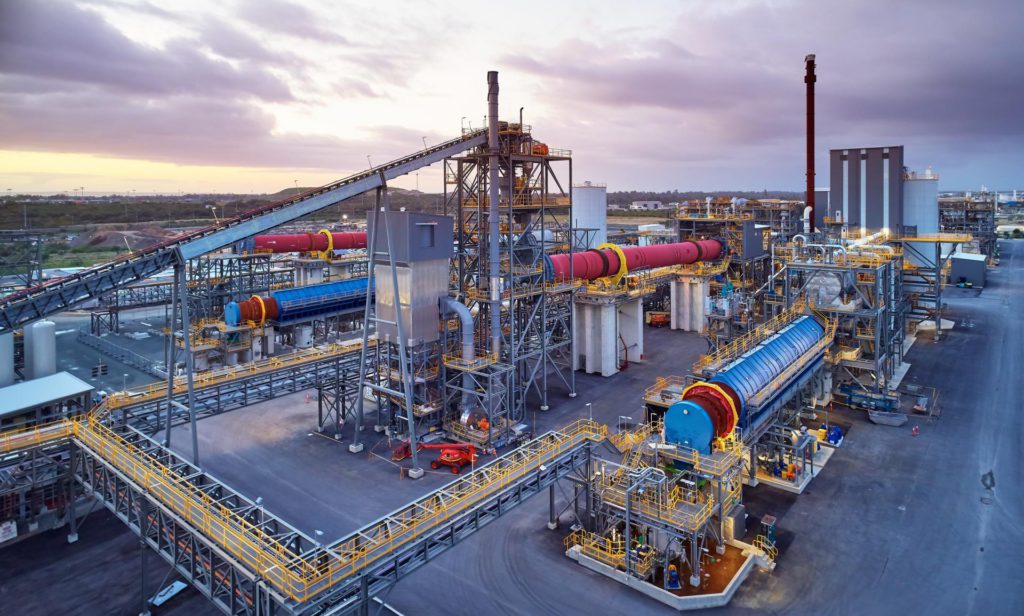US carmakers passing up lithium from Australia’s first refinery

The head of Australia’s first lithium hydroxide refinery says it’s attracted little attention from US carmakers seeking to buy the metal that’s crucial to the world’s renewable energy revolution.
That’s despite Tianqi Lithium Energy Australia’s plant being one of the few in the world producing lithium expected to be compliant with President Joe Biden’s new laws designed to break China’s stranglehold on the global battery supply chain.
The joint venture between China’s Tianqi Lithium Corp. and Australian miner IGO Ltd. in May produced the nation’s first battery-grade lithium hydroxide at its refinery near Perth, Western Australia. Chief Executive Officer Raj Surendran said in an interview it’s aiming to reach annual full capacity of 24,000 tons “toward the back end of next year” — enough for more than half a million electric vehicles.
While TLEA had been approached by Asian and European carmakers, interest from the US had been “less so,” Surendran said, declining to speculate why. South Korean buyers were among those most aggressively seeking deals with Western Australian producers, he said.
Read more: Breaking China’s grip on rare earths markets a ‘pipe dream,’ Australia says
The company is considering restarting work on a second production train, already part-built, that would double output by around 2025, Surendran said. Albemarle Corp., which produced its first battery-grade lithium in Western Australia in July, is expected to produce a similar amount.
That could be a boost for US carmakers, as they struggle to meet the conditions of Biden’s Inflation Reduction Act. Signed into law in August, it offers up to $7,500 in tax credits on electric vehicles, provided they source the majority of materials from the US or countries with which it has a free-trade agreement, like Australia.
China’s domination
China accounts for 80% of the world production capacity of lithium hydroxide — a key chemical in the lithium-ion batteries that power EVs — according to the International Energy Agency. Surendran said he believed his plant’s lithium hydroxide would qualify as non-Chinese even though TLEA is majority Chinese-owned, because it is made in Australia from Australian-mined ore.
“We haven’t got a definitive view on it, but our strong belief is that we will be compliant with the IRA,” Surendran said in a interview last week.
The text of the IRA itself isn’t clear whether Chinese ownership would disqualify a product from receiving the tax credits, said Daisy Jennings-Gray, a London-based senior price analyst with Benchmark Mineral Intelligence.
“There’s still a few things that need to be clarified, and ownership will be an interesting one of those,” she said in an interview.
Surendran said the company wasn’t actively chasing offtake buyers while the plant ramped up to commercial production. “My view is that this is one chemical that sells itself,” he said, adding he already had buyers for the first train of production — South Korean battery maker SK On Ltd. and Sweden’s Northvolt AB.
Australia is the world’s biggest producer of lithium, but until this year has had no chemical refineries, forcing it to ship the majority of its ore to China for refining.
Delays, blowouts
Still, both Tianqi and Albemarle’s attempts to build Australian refiners have been plagued with delays and cost blowouts. TLEA’s first production train has already cost double the expected price, Surendran said, and the holdups prompted two customers to cancel purchase agreements.
Lithium prices have more than doubled this year as major global carmakers across Europe, the US and Asia announced ambitious EV production targets. Surendran said he expected the market to favor lithium producers the remainder of the decade.
“Intelligence at the moment is saying that lithium demand is expected to double to about 1.5 million tons by 2027, but output will be slightly less than that,” he said.
(By James Fernyhough)
{{ commodity.name }}
{{ post.title }}
{{ post.date }}




Comments
BOB HALL
The IRA is a joke led by a joke. There is not enough generating or distribution capacity to run E autos. But the treasury will dump big bucks into luxury autos. AHHHH Charley Brown – I can’t go on!